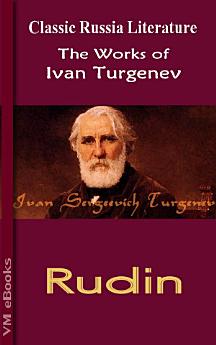關於本電子書
INTRODUCTION
Turgenev is an author who no longer belongs to Russia only. During the last fifteen years of his life he won for himself the reading public, first in France, then in Germany and America, and finally in England.
In his funeral oration the spokesman of the most artistic and critical of European nations, Ernest Renan, hailed him as one of the greatest writers of our times: 'The Master, whose exquisite works have charmed our century, stands more than any other man as the incarnation of a whole race,' because 'a whole world lived in him and spoke through his mouth.' Not the Russian world only, we may add, but the whole Slavonic world, to which it was 'an honour to have been expressed by so great a Master.'
This recognition was, however, of slow growth. It had nothing in it of the sudden wave of curiosity and gushing enthusiasm which in a few years lifted Count Tolstoi to world-wide fame. Neither in the personality of Turgenev, nor in his talent, was there anything to strike and carry away popular imagination.
By the fecundity of his creative talent Turgenev stands with the greatest authors of all times. The gallery of living people, men, and especially women, each different and perfectly individualised, yet all the creatures of actual life, whom Turgenev introduces to us; the vast body of psychological truths he discovers, the subtle shades of men's feelings he reveals to us, is such as only the greatest among the great have succeeded in leaving as their artistic inheritance to their country and to the world.
評分和評論
關於作者
About Ivan Sergeyevich Turgenev
Ivan Sergeyevich Turgenev (November 9, 1818 – September 3, 1883) was a Russian novelist, short story writer, and playwright. His first major publication, a short story collection entitled A Sportsman's Sketches (1852), was a milestone of Russian Realism, and his novel Fathers and Sons (1862) is regarded as one of the major works of 19th-century fiction.
Turgenev's artistic purity made him a favorite of like-minded novelists of the next generation, such as Henry James and Joseph Conrad, both of whom greatly preferred Turgenev to Tolstoy and Dostoyevsky. James, who wrote no fewer than five critical essays on Turgenev's work, claimed that "his merit of form is of the first order" (1873) and praised his "exquisite delicacy", which "makes too many of his rivals appear to hold us, in comparison, by violent means, and introduce us, in comparison, to vulgar things" (1896). Vladimir Nabokov, notorious for his casual dismissal of many great writers, praised Turgenev's "plastic musical flowing prose", but criticized his "labored epilogues" and "banal handling of plots". Nabokov stated that Turgenev "is not a great writer, though a pleasant one", and ranked him fourth among nineteenth-century Russian prose writers, behind Tolstoy, Gogol, and Anton Chekhov, but ahead of Dostoyevsky. His idealistic ideas about love, specifically the devotion a wife should show her husband, were cynically referred to by characters in Chekhov's "An Anonymous Story".
Turgenev wrote on themes similar to those found in the works of Tolstoy and Dostoyevsky, but he did not approve of the religious and moral preoccupations that his two great contemporaries brought to their artistic creation. Turgenev was closer in temperament to his friends Gustave Flaubert and Theodor Storm, the North German poet and master of the novella form, who also often dwelt on memories of the past and evoked the beauty of nature.











